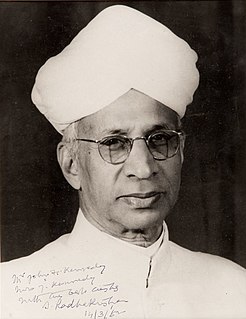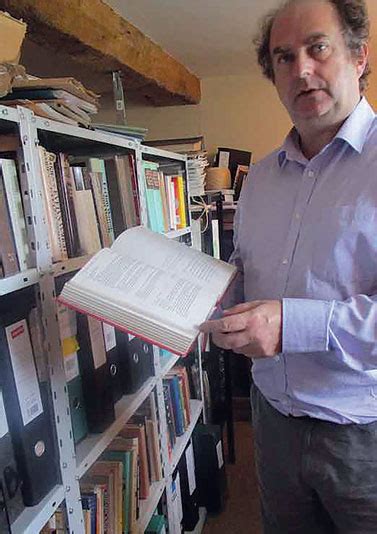A Quote by Aldous Huxley
The Perennial Philosophy is expressed most succinctly in the Sanskrit formula, tat tvam asi ('That art thou'); the Atman, or immanent eternal Self, is one with Brahman, the Absolute Principle of all existence; and the last end of every human being, is to discover the fact for himself, to find out who he really is.
Related Quotes
This life of yours which you are living is not merely a piece of this entire existence, but in a certain sense the whole; only this whole is not so constituted that it can be surveyed in one single glance. This, as we know, is what the Brahmins express in that sacred, mystic formula which is yet really so simple and so clear; tat tvam asi, this is you. Or, again, in such words as "I am in the east and the west, I am above and below, I am this entire world."
Where will you go to seek Brahman? He is immanent in all beings. Here, here is the visible Brahman! Shame on those who, neglecting the visible Brahman, set their minds on other things! Here is the visible Brahman before you as tangible as a fruit in one's hand! Can't you see? Here - here - is Brahman!
Only to the extent that someone is living out this self transcendence of human existence, is he truly human or does he become his true self. He becomes so, not by concerning himself with his self's actualization, but by forgetting himself and giving himself, overlooking himself and focusing outward.
The reason why I do not know anything about myself, the reason why Siddhartha has remained alien and unknown to myself is due to one thing, to one single thing--I was afraid of myself, I was fleeing from myself. I was seeking Atman, I was seeking Brahman, I was determined to dismember myself and tear away its layers of husk in order to find in its unknown innermost recess the kernel at the heart of those layers, the Atman, life, the divine principle, the ultimate. But in so doing, I was losing myself.
The word Atman (Soul) means the "breath of life". Atman is the principle of man's life, the Soul that pervades his being, his breath, his intellect and transcends them. Atman is what remains when everything that is not the self is eliminated. It is the unborn and immortal element in man, which is not to be confused with body, mind or intellect.
One can delineate the domain of philosophy however one likes, but in its search for truth, philosophy is always concerned with human existence. Authentic philosophizing refuses to remain at the stage of knowledge […]. Care for human existence and its truth makes philosophy a 'practical science' in the deepest sense, and it also leads philosophy—and this is the crucial point—into the concrete distress of human existence.
Either all things proceed from one intelligent source and come together as in one body, and the part ought not to find fault with what is done for the benefit of the whole; or there are only atoms, and nothing else than a mixture and dispersion. Why, then, art thou disturbed? Say to this ruling faculty, Art thou dead, art thou corrupted, art thou playing the hypocrite, art thou become a beast, dost thou herd and feed with the rest?
Wheeler hopes that we can discover, within the context of physics, a principle that will enable the universe to come into existence "of its own accord." In his search for such a theory, he remarks: "No guiding principle would seem more powerful than the requirement that it should provide the universe with a way to come into being." Wheeler likened this 'self-causing' universe to a self-excited circuit in electronics.
In affirming God to be supreme in all things, the classical theist describes him in a number of ways. He is perfect, loving, good, infinite, omnipotent, omniscient, eternal, timeless, transcendent, personal, immutable and immanent. But how can this be? Is it really possible to be both eternal and timeless? Immutable and immanent? Personal and at the same time transcendent?
The subject who speaks is situated in relation to the other. This privilege of the other ceases to be incomprehensible once we admit that the first fact of existence is neither being in itself nor being for itself but being for the other, in other words, that human existence is a creature. By offering a word, the subject putting himself forward lays himself open and, in a sense, prays.




































